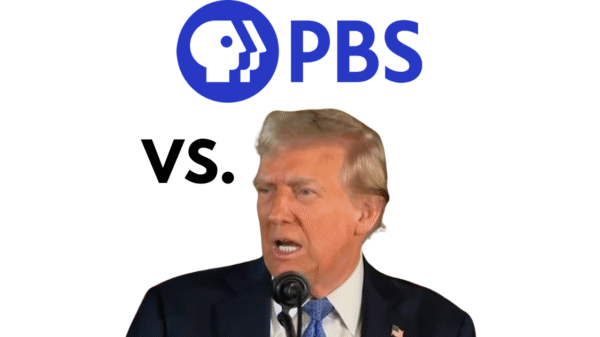The United States leads the world in exporting weapons. Cuba leads the world in exporting medical services. Yet in the funhouse mirror that is Florida politics, it’s Cuba’s exports that are the problem.
According to the U.S. State Department, the U.S. comprises almost 80 percent of the world’s weapons trade, exporting four times more weapons internationally than the next nine countries combined.
By contrast, Cuba sends 50,000 Cuban doctors and medical personnel to work across 67 countries, providing critical aid to some of the world’s poorest and most neglected populations.
Yet under the pretense of fighting “human trafficking,” Florida Republican U.S. Sens. Rick Scott and Marco Rubio, along with U.S. Sen. Ted Cruz, R-Tex., seek to impede Cuba’s medical assistance programs. Their new bill, the “Cut Profits to the Cuban Regime Act,” would target both Cuba and the countries accepting Cuban medical aid. Scott, the bill’s sponsor, has found an ally in President Donald Trump, who describes the participating doctors as “slaves.”
Countries receiving Cuba’s medical assistance deny this and condemn Scott’s bill. Gaston Browne, the prime minister of Antigua and Barbuda, criticizes Scott’s “new definition of human trafficking.”
“For over 30 years we have been utilizing Cuban specialists…to suggest…employing the services of Cuban professionals is a form of forced labor and therefore human trafficking, that is not true, we do not accept it,” Browne said.
Longtime Caribbean diplomat Ronald Sanders asserted, “Caribbean countries have no basis for believing that the medical personnel are ‘forced labor’.”
The Organisation of Eastern Caribbean States (OECS) has also criticized American claims, and the Miami Herald noted that American opposition to the Cuban medical program “is not making headway in the Caribbean.”
Dr. Gracilliano Díaz, who served in the Cuban medical mission to fight Ebola in Sierra Leone in 2014, explained, “We do this voluntarily…what matters to us is that we contribute to the world.”
Dr. Leonardo Fernández, who has volunteered in Cuban medical missions on three continents, asked, “How can I be a slave when my family receives my full salary while I’m abroad?”
Certainly, life is not easy for these Cuban doctors. Like many professionals in Latin America, the pay they receive for their work is modest. They are often asked to work in areas wracked by terrible poverty or even violence. While living standards in Cuba are certainly unenviable, Cuba does not have the mass slum poverty nor violence that exists in many parts of Latin America. Understandably, Cuban doctors arriving in other countries can find this change in circumstances disheartening.
Ed Augustin, a Havana-based journalist for The Guardian, says Cuban doctors go abroad out of a combination of altruism and materialism.
“In seven years of conversing with medics in Cuba, I’ve never met a doctor or a nurse who said they were forced to work abroad. Waiting lists are oversubscribed,” Augustin noted.
Cuban geneticist Greicy Rodríguez told Augustin she is proud that in Venezuela in 2008 she helped people who had never even seen a doctor before. After she revived a baby near death from dehydration, she explained, “Her family ended up naming her after me. It was a beautiful experience.”
Cubans on medical missions also benefit because they gain access to hard currency. This allows their families to purchase consumer items generally unavailable in Cuba, and the doctors come back well off compared to the average Cuban. Cuba specialist Mark Keller of the Economist Intelligence Unit explained, “If you have a family member abroad who’s earning dollars, you’ll live a totally different life.”
George W. Bush created the Cuban Medical Professional Parole program in 2006 with the specific goal of encouraging Cuban medical personnel to defect to the United States.
While that program did not have much impact, it is certainly true that these Cuban doctors do have a large economic incentive to come to the U.S. American doctors earn good salaries but they also graduate medical school with an average debt of $250,000. Cuban doctors, educated free of charge by the Cuban government, would arrive in the U.S. debt-free. It’s no surprise that the Cuban government works to discourage such defections–imagine how we would feel if a group of American doctors sought to skip out on massive federal student loan debts to move to another country.
Cuba is renowned for its capacity to rapidly deploy medical teams to disaster areas around the world in response to earthquakes, tsunamis, hurricanes, and pandemics. Recently, Cuban personnel have been sent to numerous countries to help fight COVID-19.
Sanders contrasts Cuba’s medical assistance with the “remarkable indifference to the critical public health emergency confronted by all Caribbean countries” shown by Scott, Rubio and Cruz. He asserted, “The presence of Cuban medical personnel has made a huge and beneficial difference…to manage COVID-19 and its spread. It is no exaggeration to say that without the Cuban medical personnel the medical system of several Caribbean countries would have collapsed.”
Browne explained, “Cuban nurses and doctors are a significant part of the health infrastructure of many Caribbean countries and if they were to force us to get rid of these Cuban professionals, then they will dismantle our health system.”
Scott’s bill is an effort to hurt the Cuban economy by cutting off the $7 billion Cuba earns annually from exporting medical services. It is also an election year stunt pandering to Florida’s Cuban émigré population.
Yet whatever the strategic or electoral rationale, this attempt to interfere with desperately needed medical assistance at a time of crisis is rightly seen in Latin America as Yankee arrogance and insensitivity. The US has largely turned its back on helping the world’s poorer nations fight COVID-19—how can it pass judgment on Cuba’s efforts to provide this critical aid?
Glenn Sacks has a Master’s Degree in Latin American Studies from UCLA and has traveled in Cuba.





















